Erica Vetsch's Blog, page 83
July 26, 2020
Sunday Scripture & Prayer Requests
 The Pearl of Great Price, by Domenico Fetti,
The Pearl of Great Price, by Domenico Fetti, 17th century. [PD-US]
Jesus said to his disciples:
“The kingdom of heaven is like a treasure buried in a field,
which a person finds and hides again,
and out of joy goes and sells all that he has and buys that field.
Again, the kingdom of heaven is like a merchant
searching for fine pearls.
When he finds a pearl of great price,
he goes and sells all that he has and buys it.
Again, the kingdom of heaven is like a net thrown into the sea,
which collects fish of every kind.
When it is full they haul it ashore
and sit down to put what is good into buckets.
What is bad they throw away.
Thus it will be at the end of the age.
The angels will go out and separate the wicked from the righteous
and throw them into the fiery furnace,
where there will be wailing and grinding of teeth.
“Do you understand all these things?”
They answered, “Yes.”
And he replied,
“Then every scribe who has been instructed in the kingdom of heaven
is like the head of a household
who brings from his storeroom both the new and the old.”
Matthew 13:44-52
The Seekerville bloggers are praying for YOU and for our entire blog community. If you have any special intentions that need additional prayer coverage, leave a request for prayer in the comment section below.
Please join us in praying for the United States--and the world--during this coronavirus outbreak. Also please pray for calm to be restored to our country and for peace to reign.
We are so grateful for all of you—for your friendship and your support! May the Lord bless you and your families and keep you safe.
Published on July 26, 2020 10:44
Sunday Prayer Requests
A beautiful Old Testament verse begins our new week.... and the gift that Solomon requests is one that can resound in today's current chaos and clutter of voices:
First Kings 3:5, 7-125 At Gibeon Yahweh appeared to Solomon in a dream during the night. God said, 'Ask what you would like me to give you.'7 Now, Yahweh my God, you have made your servant king in succession to David my father. But I am a very young man, unskilled in leadership.8 And here is your servant, surrounded with your people whom you have chosen, a people so numerous that its number cannot be counted or reckoned.9 So give your servant a heart to understand how to govern your people, how to discern between good and evil, for how could one otherwise govern such a great people as yours?'10 It pleased Yahweh that Solomon should have asked for this.11 'Since you have asked for this,' God said, 'and not asked for long life for yourself or riches or the lives of your enemies but have asked for a discerning judgement for yourself,12 here and now I do what you ask. I give you a heart wise and shrewd as no one has had before and no one will have after you. From the Seekers: In times of division and trouble, we look to God's word and we realize that times of division and trouble have plagued mankind from the days of Cain and Abel... and that our free will is ours to choose good or evil... and to discern, as Solomon asked for discernment.The Seekers are praying for you today, and every day, wanting your lives to be joyous and fruitful in the arms of our Savior. God is good!You can leave prayer requests below or keep them in the corners of your heart... either way, we are praying for you.
First Kings 3:5, 7-125 At Gibeon Yahweh appeared to Solomon in a dream during the night. God said, 'Ask what you would like me to give you.'7 Now, Yahweh my God, you have made your servant king in succession to David my father. But I am a very young man, unskilled in leadership.8 And here is your servant, surrounded with your people whom you have chosen, a people so numerous that its number cannot be counted or reckoned.9 So give your servant a heart to understand how to govern your people, how to discern between good and evil, for how could one otherwise govern such a great people as yours?'10 It pleased Yahweh that Solomon should have asked for this.11 'Since you have asked for this,' God said, 'and not asked for long life for yourself or riches or the lives of your enemies but have asked for a discerning judgement for yourself,12 here and now I do what you ask. I give you a heart wise and shrewd as no one has had before and no one will have after you. From the Seekers: In times of division and trouble, we look to God's word and we realize that times of division and trouble have plagued mankind from the days of Cain and Abel... and that our free will is ours to choose good or evil... and to discern, as Solomon asked for discernment.The Seekers are praying for you today, and every day, wanting your lives to be joyous and fruitful in the arms of our Savior. God is good!You can leave prayer requests below or keep them in the corners of your heart... either way, we are praying for you.
Published on July 26, 2020 04:42
July 24, 2020
Weekend Edition

If you are not familiar with our giveaway rules, take a minute to read them here. It keeps us all happy! All winners should send their name, address, and phone number to claim prizes. Note our new email address and please send your emails to Seekerville2@gmail.com

Monday: Jan Drexler shared about how to use dialogue to your advantage.
Wednesday: Cate Nolan chatted with us about crafting a compelling story to help people change for the better.
Friday: Pam Hillman shared "What You Don't Know CAN Hurt You."

Monday: Erica Vetsch will blog about Press Kits, and there will be a bit of news about one of her books on SALE! :)
Wednesday: TBA Friday: TBA

Book 2 in the Serendipity & Secrets series by Erica Vetsch releases on Tuesday, July 28th! You can get your copy of The Gentleman Spy now!!
Amazon GooglePlay Barnes&Noble ChristianBook.com or your local, independent Christian bookstore!

Celebrate Christmas in July! Through 7/28 you can grab The Deputy's Holiday Family, book two in Mindy Obenhaus's Rocky Mountain Heroes series, for only $1.99. Available at Amazon and Barnes & Noble.


4 Questions To Prevent Plot Holes by KM Weiland at Helping Writers Become Authors
Creating a Publishing Timeline for Your Next Release by Becca Puglisi at The Self-Publisher
How to Create a Free Book Trailer Using Adobe Spark by Chys Fey at Fiction University
Conflict vs Tension by Melissa Tagg at Learn How To Write A Novel
Are You Wearing Your Writing PPE? by Lori Hatcher at The Write Conversation
Writing A Series. Satisfy Readers and Make More Money by Lindsay Buroker at The Creative Penn
Published on July 24, 2020 21:00
July 23, 2020
What You Don't Know CAN Hurt You
by Pam Hillman
There’s an old proverb that goes something like this, “What you don’t know can’t hurt you.”
Basically, the idea is if you don’t know about a problem or a misdeed, you won’t be able to make yourself unhappy by worrying about it.
Hmmm, okay.
But I suppose there is some merit to the saying, because up until three years ago, my husband and I didn’t have a television in our home. We pretty much missed all the insanity going on in the world for the last thirty years. Not that we weren’t aware and plugged in, but we just didn’t hear the news 24/7 like we do now. Now, we get a play-by-play of everything that’s going wrong in our world. I think I liked not knowing so much!
And, in the writing world, how can not knowing really be detrimental to a career? There are so many ways…
1) If you don’t know how to plot a compelling story, or how to build up tension or layer in details, keep writing, and keep learning the craft. But, first, just keep writing. You don’t get to the next step if you don’t write.
2) If you don’t know that Editor Erin loves stories featuring a love triangle, but Agent Angela isn’t fond of them at all, it might be a good idea to study up on their likes and dislikes.
3) If you don’t know the latest way the wind is blowing regarding ebooks vs. print books, why not?
4) If you don’t know if you’re writing Christian fiction or general fiction, keep writing until you do.
5) If you don’t know your story’s genre, then keep writing until you do. It doesn’t matter if you’re planning to self-publish or go the traditional route, your novel will eventually fit into some sub genre, and you’ll need to verbalize that.
6) If you don’t know about contracts/agreements and the traps to look for, it can certainly come back to haunt you. This applies to traditional publishing as well as self-publishing.
7) If you don’t know that a publishing house has closed its doors or discontinued a line, you’re really spinning your wheels by writing to the line. You’d be better off writing to your heart.
8) If you don’t know how to take your novel from your computer file to the reader (if you plan to self-publish), there’s a lot to learn. But you can do it. You have the tools at your disposal. Just keep writing.
9) If you don’t know about Seekerville, then you’re missing out on a ton of great teaching and blog posts that can answer all of the unknowns I’ve covered above and more.
10) If you don’t know about American Christian Fiction Writers (ACFW), then there’s even more knowledge to be gained within its ranks.
11) If you don’t know that you and only you can write the story that’s burning on your heart, then I’m here to tell you that you can. Start with #1. Write your story. Make it compelling. Write a story that you know backwards and forwards. And along the way, all the other points will come into play.
 CBA Bestselling author PAM HILLMAN was born and raised on a dairy farm in Mississippi and spent her teenage years perched on the seat of a tractor raking hay. In those days, her daddy couldn't afford two cab tractors with air conditioning and a radio, so Pam drove an Allis Chalmers 110. Even when her daddy asked her if she wanted to bale hay, she told him she didn't mind raking. Raking hay doesn't take much thought so Pam spent her time working on her tan and making up stories in her head. Now, that's the kind of life every girl should dream of. www.pamhillman.com
CBA Bestselling author PAM HILLMAN was born and raised on a dairy farm in Mississippi and spent her teenage years perched on the seat of a tractor raking hay. In those days, her daddy couldn't afford two cab tractors with air conditioning and a radio, so Pam drove an Allis Chalmers 110. Even when her daddy asked her if she wanted to bale hay, she told him she didn't mind raking. Raking hay doesn't take much thought so Pam spent her time working on her tan and making up stories in her head. Now, that's the kind of life every girl should dream of. www.pamhillman.com
There’s an old proverb that goes something like this, “What you don’t know can’t hurt you.”
Basically, the idea is if you don’t know about a problem or a misdeed, you won’t be able to make yourself unhappy by worrying about it.
Hmmm, okay.
But I suppose there is some merit to the saying, because up until three years ago, my husband and I didn’t have a television in our home. We pretty much missed all the insanity going on in the world for the last thirty years. Not that we weren’t aware and plugged in, but we just didn’t hear the news 24/7 like we do now. Now, we get a play-by-play of everything that’s going wrong in our world. I think I liked not knowing so much!
And, in the writing world, how can not knowing really be detrimental to a career? There are so many ways…
1) If you don’t know how to plot a compelling story, or how to build up tension or layer in details, keep writing, and keep learning the craft. But, first, just keep writing. You don’t get to the next step if you don’t write.
2) If you don’t know that Editor Erin loves stories featuring a love triangle, but Agent Angela isn’t fond of them at all, it might be a good idea to study up on their likes and dislikes.
3) If you don’t know the latest way the wind is blowing regarding ebooks vs. print books, why not?
4) If you don’t know if you’re writing Christian fiction or general fiction, keep writing until you do.
5) If you don’t know your story’s genre, then keep writing until you do. It doesn’t matter if you’re planning to self-publish or go the traditional route, your novel will eventually fit into some sub genre, and you’ll need to verbalize that.
6) If you don’t know about contracts/agreements and the traps to look for, it can certainly come back to haunt you. This applies to traditional publishing as well as self-publishing.
7) If you don’t know that a publishing house has closed its doors or discontinued a line, you’re really spinning your wheels by writing to the line. You’d be better off writing to your heart.
8) If you don’t know how to take your novel from your computer file to the reader (if you plan to self-publish), there’s a lot to learn. But you can do it. You have the tools at your disposal. Just keep writing.
9) If you don’t know about Seekerville, then you’re missing out on a ton of great teaching and blog posts that can answer all of the unknowns I’ve covered above and more.
10) If you don’t know about American Christian Fiction Writers (ACFW), then there’s even more knowledge to be gained within its ranks.
11) If you don’t know that you and only you can write the story that’s burning on your heart, then I’m here to tell you that you can. Start with #1. Write your story. Make it compelling. Write a story that you know backwards and forwards. And along the way, all the other points will come into play.
 CBA Bestselling author PAM HILLMAN was born and raised on a dairy farm in Mississippi and spent her teenage years perched on the seat of a tractor raking hay. In those days, her daddy couldn't afford two cab tractors with air conditioning and a radio, so Pam drove an Allis Chalmers 110. Even when her daddy asked her if she wanted to bale hay, she told him she didn't mind raking. Raking hay doesn't take much thought so Pam spent her time working on her tan and making up stories in her head. Now, that's the kind of life every girl should dream of. www.pamhillman.com
CBA Bestselling author PAM HILLMAN was born and raised on a dairy farm in Mississippi and spent her teenage years perched on the seat of a tractor raking hay. In those days, her daddy couldn't afford two cab tractors with air conditioning and a radio, so Pam drove an Allis Chalmers 110. Even when her daddy asked her if she wanted to bale hay, she told him she didn't mind raking. Raking hay doesn't take much thought so Pam spent her time working on her tan and making up stories in her head. Now, that's the kind of life every girl should dream of. www.pamhillman.com
Published on July 23, 2020 21:00
July 21, 2020
The Power of Story
Several years ago I received an email from an organization called The Greater Good.
The email contained an article, by Paul J. Zak, called How Stories Change the Brain.
The article reminded me of a post I had done as a guest here at Seekerville about Wired for Story . This kind of stuff fascinates me, so I read the article and watched the accompanying video. They've stuck with me for years.
Although Wired by Lisa Kron and the Greater Good article by Paul Zak, approach the topic differently, their conclusions are ultimately the same.
Story is vital to our survival. The brain loves story, and stories change our brains.
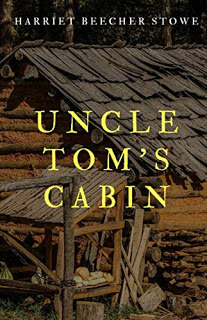
Have you ever heard the story about Abraham Lincoln meeting Harriet Beecher Stowe, author of Uncle Tom's Cabin, and saying, "So this is the little lady who started this big war."
The anecdote may or may not be true, but that book certainly had a powerful influence.
Unfortunately, words don't always cause change for good. A childhood friend of Adolf Hitler claimed that he drew inspiration for his Aryan nation from Wagner's early opera Rienzi, which in turn was based on a book by Edward Bulwer-Lytton (of It was a dark and stormy night fame)?
Who remembers this scene from Romancing the Stone?
Kathleen Turner evoked the exhilaration writers feel when the writing is working. But I think readers also identify with the scene because they completely understand the sheer power of story to carry you out of your daily life. That's what we're talking about today. Story and the power it wields.

What do we need to know as writers?
Here's a video from Zak's article that shows you how story impacts your brain - literally shows you. It's only 5 minutes long so I encourage you to watch it. Then come back and we'll talk. Go ahead. I'll wait. It's fascinating stuff. (Warning, it's a bit sad - but that's the point!)
The part of the video I found most intriguing was at the 3:35 mark (through 4:31). If you weren't able to watch, through brain imaging, Zak's team was able to show brain activity in response to different types of stories. In response to the story of a father whose son is dying, brains lit up with empathy and understanding of what others are feeling. In response to a story of a father having a fun day at the zoo with his son, nothing lit up. Nothing.
That's powerful imagery!
Imagine readers reading your stories. Do their brains light up in response to what you have written, thus keeping them invested in the story, or is there no response? If nothing is happening in your story, the reader's brain won't tune in. That's hard, cold science. It's also a boring book.
Zak connects this brain imaging to the Dramatic Arc of story.
"This evidence supports the view of some narrative theorists that there is a universal story structure. These scholars claim every engaging story has this structure, called the dramatic arc. It starts with something new and surprising, and increases tension with difficulties that the characters must overcome, often because of some failure or crisis in their past, and then leads to a climax where the characters must look deep inside themselves to overcome the looming crisis, and once this transformation occurs, the story resolves itself. "
There's more, but I don't want to give away the whole story. If you'd like to read the full article, you can find it here.
This is important information for any writer. We need to know how to construct our stories - and that is a post for another day.
I could have just ended this post with the advice to write a really interesting story with lots going on.
But as I was reading the article and thinking about this post, a song kept playing in my head.
It reminded me that for those of us who write inspirational fiction, we have an awesome responsibility because, through our characters and their struggles, we are sharing that story of Jesus and his love.
Deeper into the Greater Good article, Zak goes on to say, "We also tested why stories can motivate us, like the characters in them, to look inside ourselves and make changes to become better people."
The message for authors seems clear - craft a compelling story and you can change people for the better.
How cool is that?
I can't help thinking about one of my favorite Hallmark movies from this past spring - The Nature of Love. No spoilers, but at the end, the heroine has a revelation about the kind of writer she wants to be - she wants her words to matter. She wants to use the power of her words for change.
Let's talk - as readers and writers.
I remember when I first decided to write for Love Inspired. I chose it because when I read those books, I wanted to be a better person.
Readers, do you find books having that effect on you?
Writers, are you conscious of this power when you are crafting your stories? How do you feel about the responsibility you're assuming?
Published on July 21, 2020 21:00
July 19, 2020
Using Dialogue to Your Advantage
by Jan Drexler

Every story needs dialogue, right?
But if dialogue isn’t used well, it can be a liability to your story. A space-filler. Nothing but a word-count booster. We want to avoid useless conversations in our stories at all costs!
Dialogue can be strong, bringing clarity to our characters and our scenes, but dialogue can also be a pitfall.
What are some of the liabilities of dialogue?
1) Dialogue can take the place of action.
2) Dialogue can take the reader and the characters around in aimless circles.
3) Dialogue can stop story progression in its tracks.
...unless we, as authors, take control of those liabilities and use dialogue to help our stories sing.

How can you make sure your dialogue adds to your scene rather than bogs it down?
The trick is to have your character’s goal in the forefront at all times – but this is easier said than done, right? I find it helpful to write out my character’s goal, conflict, and the disaster for each scene before I start writing it and post it on my computer screen, or my desk, or my planner - someplace that keeps it in front of me while I write..
Here’s an example from my Work in Progress, a cozy mystery. Emma, the main character, and sleuth in the story, has discovered a body in her room at the Sweetbriar Inn B&B where she’s working. Her goal is to clear her name, the conflict is that the evidence is against her, and the disaster is that Deputy Cal ends up accusing her of murder.
The biggest advantage to using dialogue is that it adds movement to your scenes – a give and take between the characters that can highlight personalities.
The style of dialogue can add something else to your scene. In the example above, I used a back and forth style with short sentences like bullets. Very little introspection. Tension that rises and falls. This (I hope) keeps the reader involved in the action, present with Emma as she experiences the interview.
I wanted to keep this interview casual, more like a conversation between friends than an interrogation. If I wanted Cal to be an antagonist, I could have made his questions even shorter and have him pound each statement in like a rivet.

In a romance, I tend to use dialogue with more tags, descriptors, and introspection. Here’s an example from “Softly Blows the Bugle,” my October release from Revell. In this genre I use a different kind of scene structure – one that reveals Aaron’s goal (to leave Weaver’s Creek as soon as he can,) his motivation (to escape the memories of the war,) and his conflict (fighting against his own Amish background.) The conflict doesn’t appear until the end of the scene, left out of this excerpt.
In this scene the dialogue is drawn out. Longer sentences, a lot of introspection. This kind of dialogue helps to set the tone for the story.
Even though this dialogue is very different from the scene in my cozy mystery, it still moves the story along. But notice how the dialogue tags and actions make a difference in how the scene reads. As authors, we can use dialogue styles to control the pacing of the story, the mood of the story, and even the genre.

Another use for dialogue in your story is to convey the theme. Not sure what the theme of your book is? Listen to your characters as they speak. Sometimes they'll surprise you by revealing the theme.
One of the best examples of this happening is in this scene from The Fellowship of the Ring by J.R.R. Tolkien. Even in the movie version, the theme comes through powerfully.
Now it's your turn. Do you enjoy writing dialogue, or does the idea of it turn your brain into oatmeal? How have you used dialogue to your advantage - or how have you seen dialogue used well in a book you've read?
And by the way, "Softly Blows the Bugle" is available for preorder!
Even if you aren't able to order the book at this time, would you do me a favor and put it on your "want to read" list at Goodreads? Here's the link: Goodreads
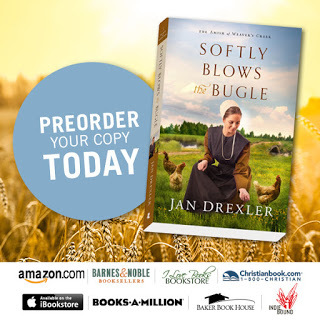

Every story needs dialogue, right?
But if dialogue isn’t used well, it can be a liability to your story. A space-filler. Nothing but a word-count booster. We want to avoid useless conversations in our stories at all costs!
Dialogue can be strong, bringing clarity to our characters and our scenes, but dialogue can also be a pitfall.
What are some of the liabilities of dialogue?
1) Dialogue can take the place of action.
2) Dialogue can take the reader and the characters around in aimless circles.
3) Dialogue can stop story progression in its tracks.
...unless we, as authors, take control of those liabilities and use dialogue to help our stories sing.

How can you make sure your dialogue adds to your scene rather than bogs it down?
The trick is to have your character’s goal in the forefront at all times – but this is easier said than done, right? I find it helpful to write out my character’s goal, conflict, and the disaster for each scene before I start writing it and post it on my computer screen, or my desk, or my planner - someplace that keeps it in front of me while I write..
Here’s an example from my Work in Progress, a cozy mystery. Emma, the main character, and sleuth in the story, has discovered a body in her room at the Sweetbriar Inn B&B where she’s working. Her goal is to clear her name, the conflict is that the evidence is against her, and the disaster is that Deputy Cal ends up accusing her of murder.
The deputy at the door buzzed me right through to Cal’s office.
“You must have been expecting me.” I sat in the brown vinyl upholstered chair across the desk from him.
“Becky texted me with your ETA,” he said, sitting behind his desk with the ever-present toothpick firmly in the corner of his mouth. “Can I get you anything? Coffee?”
“No thanks. I have my water with me.” I always carried a bottle of Evian in my bag, a habit left over from traveling in foreign countries on a regular basis.
“Then we’ll get started.”
Cal shuffled through some papers on his desk. He found a blank tablet and a pen, then looked at me.
“For the record, I need your full name and address.”
“Emma Blackwood.” I hesitated. “Do you want my Chicago address, or the inn?”
“The inn is good enough.” He wrote it down, then glanced at me. “What time did the victim arrive at your suite?”
“Victim? Then he really was murdered? I hoped it had been an accident.”
Leaning his elbows on his desk, Cal looked at me. “Ms Blackwood, this is an interview. I ask the questions and you answer them. Understand?”
“It’s Emma.” I squirmed in my seat. “Am I a suspect?”
“Like I said last night, everyone is a suspect at this point.” He drew a circle on his tablet. “How long have you known the victim?”
“I don’t know him. I’ve never seen him before.”
“Then what was he doing in your suite?”
“I don’t know.” And I wasn’t about to begin speculating.
“What time did you leave your room?”
“At seven in the morning.”
He wrote the time inside the circle and drew lines across it as if he was cutting a pie. “You didn’t return at all during the day?”
“We were busy all day getting ready for the guests to arrive.”
He made a note in another pie shape. “What did that entail, exactly?”
I took a deep breath. “I made sure all the beds were made with freshly laundered sheets, and fresh towels and linens were available in every room. I checked to see if the plumbing was working properly and that every room was clean. Then I made sure the common areas were ready to go. In the afternoon I took an inventory of the storeroom and took Rose’s dog for a walk before the first guests arrived.”
“What time was that?”
“Clara was the first, and she arrived just after three o’clock. Rose had picked her up at the airport and brought her to the inn.”
More notes.
“What time did Rose leave for the airport?”
I thought back. “It was after lunch. Probably around twelve-thirty.”
“Who else was at the inn before the guests arrived?”
“Just Wil.” I remembered the scones. “And Becky must have come by sometime to deliver the scones for afternoon tea, but I didn’t see her.”
“When did Mr. Brill show up?”
“I never saw him.”
“Right.” Cal made another note. “What about the wine glasses?”
“The wine glasses?” An image of two wine glasses on a tray flashed through my memory. “I didn’t see them before you came and we took you upstairs to see the body.”
Cal stared at me, bouncing the end of his pen on his tablet. “They weren’t there when you first discovered the body?”
I shut my eyes. I saw the shoes, the dim room, Tim meowing…
“No, I didn’t see them then. Only when you came back to the room with us, after Wil called you.”
“And how much time passed between finding the body and when Wil called?”
“It was at least half an hour. Maybe closer to forty-five minutes. It seemed like it was forever. I waited until all the guests had left for the evening before I told Rose about the man in my room.”
Cal bounced his pen again.
I shifted in my seat. “Is there something you haven’t told me?”
“After further examination, the coroner determined that Dick Brill’s body was moved post-mortem.”
My head swirled. “What?”
“Somebody moved him after he was dead. Perhaps someone planted his body in your room to throw suspicion on you.” He leaned back in his chair, watching me. “Unless, of course, you’re the one who moved him.”
“Why would I do that?”
“To cover up the fact that a man died in your suite. Maybe you intended to get rid of the body later.”
“But then why would I tell Rose? Why would I have Wil call you?”
He shrugged. “Maybe you got cold feet.”
My stomach churned. I began to wish I hadn’t eaten a second peach muffin.
Cal leaned on his desk again, his dark brown eyes boring into mine.
“Emma, did you murder Dick Brill?”
The biggest advantage to using dialogue is that it adds movement to your scenes – a give and take between the characters that can highlight personalities.
The style of dialogue can add something else to your scene. In the example above, I used a back and forth style with short sentences like bullets. Very little introspection. Tension that rises and falls. This (I hope) keeps the reader involved in the action, present with Emma as she experiences the interview.
I wanted to keep this interview casual, more like a conversation between friends than an interrogation. If I wanted Cal to be an antagonist, I could have made his questions even shorter and have him pound each statement in like a rivet.

In a romance, I tend to use dialogue with more tags, descriptors, and introspection. Here’s an example from “Softly Blows the Bugle,” my October release from Revell. In this genre I use a different kind of scene structure – one that reveals Aaron’s goal (to leave Weaver’s Creek as soon as he can,) his motivation (to escape the memories of the war,) and his conflict (fighting against his own Amish background.) The conflict doesn’t appear until the end of the scene, left out of this excerpt.
Footsteps in the grass behind him. Aaron turned to see Jonas. Ever since they had met in the hospital after one of the many battles in the Siege of Petersburg in October, Jonas had been the one to keep Aaron’s path straight. But it wouldn’t be long before they would go their separate ways. How did he ever come to be friends with a Yankee?
“Are you feeling all right?” Jonas rested his arms on the fence rail next to him.
“You aren’t a medic anymore.”
Jonas gave a soft chuckle. “It has become a habit.” He rolled his shoulders. “It feels good to be home, but . . .”
Aaron let the silence grow between them.
He sighed. “It isn’t what you remembered?”
“It’s still home, but not much has changed. It is as if the war didn’t happen at all.”
“But the war changed you.” Aaron let his mind go back to the angry, fiery young man he had been, hot to kill any Yankee he could find after a scouting party shot Grandpop and left him to die with his blood seeping into the Tennessee land he had loved. “Both of us. War will do that.”
Jonas looked out over the meadow. “You’re right. We’ve both seen things that Katie and my family can’t fathom. And I don’t want to tell them. I don’t want Katie to know how terribly cruel men can be.”
“Do you still think war is wrong?” Aaron looked at his friend. “Your side won. The Confederacy is dead.”
“And the slaves are free.” Jonas bowed his head. “But the cost . . . The cost is so great. I was willing to give my life so others could be free, but when I think of how many others paid the ultimate price, it grieves me.” He passed a hand over his face. “Yes, I believe war is wrong. I pray that our country will never be in another one.”
After a few minutes of silence, Jonas changed the subject.
“What do you think of my family?”
Aaron let a smile tug at the corners of his mouth. “You described each one perfectly. Except your sister Elizabeth. I wouldn’t have been able to choose her out of a crowded hog wallow if I didn’t hear your mama say her name.”
“Elizabeth is different than I remember, but she didn’t spend much time with the family when her husband was alive.”
Aaron leaned on the fence post, easing the weight pressing on his good leg. “She’s a widow?”
“Mamm said Reuben was killed at Vicksburg.”
“I thought you said that the Amish don’t fight.”
“Reuben wasn’t Amish.”
Aaron shifted again to ease his aching leg. Elizabeth was a puzzle, but he wouldn’t be around long enough to sort it out.
In this scene the dialogue is drawn out. Longer sentences, a lot of introspection. This kind of dialogue helps to set the tone for the story.
Even though this dialogue is very different from the scene in my cozy mystery, it still moves the story along. But notice how the dialogue tags and actions make a difference in how the scene reads. As authors, we can use dialogue styles to control the pacing of the story, the mood of the story, and even the genre.

Another use for dialogue in your story is to convey the theme. Not sure what the theme of your book is? Listen to your characters as they speak. Sometimes they'll surprise you by revealing the theme.
One of the best examples of this happening is in this scene from The Fellowship of the Ring by J.R.R. Tolkien. Even in the movie version, the theme comes through powerfully.
Now it's your turn. Do you enjoy writing dialogue, or does the idea of it turn your brain into oatmeal? How have you used dialogue to your advantage - or how have you seen dialogue used well in a book you've read?
And by the way, "Softly Blows the Bugle" is available for preorder!
Even if you aren't able to order the book at this time, would you do me a favor and put it on your "want to read" list at Goodreads? Here's the link: Goodreads

When Elizabeth Kaufman received the news of her husband's death at the Battle of Vicksburg in 1863, she felt only relief. She determined that she would never be at the mercy of any man again, even if it meant she would never have a family of her own. Then Aaron Zook comes home with her brother when the war ends two years later.
Despite the severity of his injuries, Aaron resolves to move West and leave the pain of the past behind him. He never imagined that the Amish way of life his grandfather had rejected long ago would be so enticing. That, and a certain widow he can't get out of his mind.
Yet, even in a simple community, life has a way of getting complicated. Aaron soon finds that while he may have left the battlefield behind, there is another fight he must win--the one for the heart of the woman he loves.Welcome back to the Amish community at Weaver's Creek, where the bonds of family and faith bind up the brokenhearted.
Published on July 19, 2020 21:00
July 18, 2020
Sunday Scripture & Prayer Requests
 The Last Judgement, Michelangelo, 1536-1541,
The Last Judgement, Michelangelo, 1536-1541,Sistine Chapel, Vatican City. [PD-US]
Jesus proposed another parable to the crowds, saying:“The kingdom of heaven may be likenedto a man who sowed good seed in his field.While everyone was asleep his enemy cameand sowed weeds all through the wheat, and then went off.When the crop grew and bore fruit, the weeds appeared as well.The slaves of the householder came to him and said,‘Master, did you not sow good seed in your field?Where have the weeds come from?’He answered, ‘An enemy has done this.’His slaves said to him,‘Do you want us to go and pull them up?’He replied, ‘No, if you pull up the weedsyou might uproot the wheat along with them.Let them grow together until harvest;then at harvest time I will say to the harvesters,“First collect the weeds and tie them in bundles for burning;but gather the wheat into my barn.”’”
He proposed another parable to them.“The kingdom of heaven is like a mustard seedthat a person took and sowed in a field.It is the smallest of all the seeds,yet when full-grown it is the largest of plants.It becomes a large bush,and the ‘birds of the sky come and dwell in its branches.’”
He spoke to them another parable.“The kingdom of heaven is like yeastthat a woman took and mixed with three measures of wheat flouruntil the whole batch was leavened.”
All these things Jesus spoke to the crowds in parables.He spoke to them only in parables,to fulfill what had been said through the prophet:I will open my mouth in parables,I will announce what has lain hidden from the foundationof the world.
Then, dismissing the crowds, he went into the house.His disciples approached him and said,“Explain to us the parable of the weeds in the field.”He said in reply, “He who sows good seed is the Son of Man,the field is the world, the good seed the children of the kingdom.The weeds are the children of the evil one,and the enemy who sows them is the devil.The harvest is the end of the age, and the harvesters are angels.Just as weeds are collected and burned up with fire,so will it be at the end of the age.The Son of Man will send his angels,and they will collect out of his kingdomall who cause others to sin and all evildoers.They will throw them into the fiery furnace,where there will be wailing and grinding of teeth.Then the righteous will shine like the sunin the kingdom of their Father.Whoever has ears ought to hear.”Matthew 13:24-43
The Seekerville bloggers are praying for YOU and for our entire blog community. If you have any special intentions that need additional prayer coverage, leave a request for prayer in the comment section below.
Please join us in praying for the United States--and the world--during this coronavirus outbreak. Also please pray for calm to be restored to our country and for peace to reign.
We are so grateful for all of you—for your friendship and your support! May the Lord bless you and your families and keep you safe.
Published on July 18, 2020 21:00
July 17, 2020
Weekend Edition

If you are not familiar with our giveaway rules, take a minute to read them here. It keeps us all happy! All winners should send their name, address, and phone number to claim prizes. Note our new email address and please send your emails to Seekerville2@gmail.com

Monday: Angela Ackerman joined us to talk about A Character's Occupation is More Important Than You Think
Wednesday: Debbie Giusti discussed Healing the Wounded Hero…and Writer and talked about what we can take away from our stories to help us with our own internal struggles. The winner of a copy of Debby’s Publishers Weekly Bestseller Dangerous Amish Inheritance is Lucy Reynolds. Friday: Winnie Griggs brought us a post on crafting effective and engaging scenes. The winner of their choice of any of Winnie's available books will be selected on Saturday afternoon.

Monday: Jan Drexler will be exploring how dialogue can be used to our advantage.
Wednesday: Cate Nolan always has wisdom to share. Friday: Pam Hillman spreads her charm through books and life!

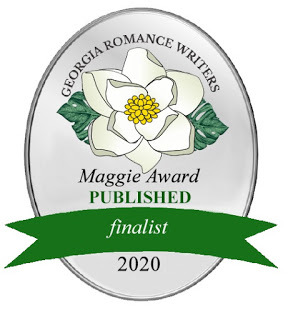
Mary Connealy is a finalist for the 2020 Maggie Awards. I've posted that news before, but the Maggie Award Committee gave me this cool badge so I'm sharing it!
Cover Reveal & Pre-OrderTwo Great Amish Stories Reissued for Your Reading Enjoyment.The Amish Christmas Matchmaker by Vannetta Chapman &Amish Christmas Secrets by Debby GiustiReleases Oct 2020Pre-Order your copy HERE!

Jan Drexler's newest release is also available for pre-order!You can order from Amazon or any of the retailers listed below.
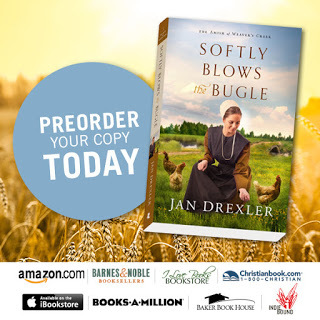
And if you missed Jan's Christmas Novella last year, Bethany House is re-releasing it as a stand-alone e-book!Just check it out on Amazon!

By the way, have you noticed that when you PRE-ORDER a book, you often get it at a discounted price? Woo-Hoo!

Check out these Terrific Writing Tools at Writers Helping Writers
Creating Vibrant Scene Structure by KM Weiland at Helping Writers Become Authors
How Writing is Like Gardening by Beth Vogt at Learn How To Write A Novel
4 FREE Must-Have Writing Apps by Laurence MacNaughton at Fiction University
Keeping Our Stories and Notes Safe by Jami Gold
Do You Need An Author Website? by Rachelle Gardener
Saving The Mt Hermon Christian Writers Conference by Edie Melson
How To Succeed as a Writer: 3 Essential Steps by Ginny Yttrup at The Self-Publisher
7 YA Plot Ideas for Fast-Paced Novels by Kris Maze at Writers In The Storm
Creating Business Cards using Book Brush by LA Sartor at Book Brush
Published on July 17, 2020 21:00
July 16, 2020
Making A Scene
Hello everyone, Winnie Griggs here. As part of our Back To Basics series, I’m reprising a post I did here on Seekerville over 10 years ago as a guest - the importance and construction of story scenes
.

The workhorse of a story is not words, or sentences or even paragraphs – rather it’s the scene. It’s in a scene that we see the key element of any good story - namely relevant change.
It is the elements of both relevance and change that makes a scene a scene.
So with that in mind I’d like to discuss eight elements I believe make comprise the checklist for an effective scene:
For purposes of this discussion, let’s imagine we’re working on a scene where our heroine, Deanna Deeva, is recently divorced. She’s struggling with what impact the label of divorcée will have on her social standing. She’s been invited to a party hosted by a longtime acquaintance and the scene opens when Deanna arrives and parks her car.
1. In an effective scene - something happens
The ‘something’ doesn’t have to be remarkable - it can be as simple as a single activity or as complex as several dozen story beats rolled together.
For instance, in our scene with Deanna Deeva, if the scene revolves around her fear of going out in public again, the ‘beats’ to this scene might stop with her making the decision to leave her car and walk up to the front door. The party itself may be transitioned over entirely since in this case it was her decision to actually join the party that was important to the story and to showing some aspect of her character.
On the other hand, if the thrust of the scene is to show how she handles being out among her friends, the scene could be composed of a number of beats - arriving at the party, a few awkward conversations, perhaps an overheard catty comment, catching the eye of an intriguing-looking gentleman, and the unexpected arrival of the ‘other woman’.
2. An effective scene should have a focus or goal
In other words, our character(s) will strive to achieve something. Note, the author needs to look at this on two very different levels:
One, is to view it from the character’s perspective - what does the character hope to accomplish during the course of this scene?
The second is the reader perspective. What do you as the author want the reader to come away from this scene with?
In our scene with Deanna Deeva, the character’s goal might be to prove to herself that her social standing was not adversely affected by the divorce. The author’s goal for the reader, however, may be to deepen her understanding of some aspect of Deanna’s character, either a strength or a weakness.
3. An effective scene should elicit a reaction
A well-crafted scene will evoke emotion of some sort, both in the characters on the page and in the reader. Note, these won’t necessarily be the same emotions.
Again, in our previous scene with Deanna Deeva, depending on how the author plays it out, the reaction of our focal character could be one of mortification, determination, depression, irritation, or even victory.
On the other hand, the reaction of the reader might be one of sympathy, amusement or even annoyance. A good writer will choreograph her scene to tease the emotions she wants from both the characters and the readers.
4. An effective scene will have a story purpose
The whole crux of your scene’s reason for being is to move the story forward in some fashion. There are many different kinds of scenes - fight scenes, flashbacks, love scenes, opening scenes, turning points, climactic scenes - but no matter the type, a scene must have some effect on the focal character or overall storyline . Something necessary to the story as a whole must be contained within the scene to warrant its existence, otherwise it should be rewritten or ruthlessly cut. In order to pull its weight effectively your scene should Ideally perform at least two story functions - three or four would be better.
5. An effective scene should have structure
• As in a full-blown story, each scene must have a well-defined beginning, middle and end. It’s a mini-story of sorts - there is an inciting incident, a series of actions or beats, and then a resolution that tells us we’ve extracted everything we can from this particular scene. However, with the exception of the final scenes, the scene resolution does leave some unanswered questions, some loose ends that nudge the reader into the subsequent scenes to try to find the answers.
6. A scene should show logical, believable progression
The scenes should flow one from the other, sculpting and shaping your story in an aesthetically satisfying way that is entertaining and relevant.
Since scenes are the building blocks of your story, they must be carefully placed and arranged with every other scene in order to construct a pleasing, functional whole. Each scene builds on the one that came before and leads to the next - enhancing, changing, or redirecting your through line in some way, either subtly or forcefully - always pushing inexorably forward to the story’s resolution.
CAUTION: Logical doesn’t mean predictable, but given what the reader knows about the characters and the situation, it must be a believable next step.
7. A scene should have a mood or attitude
This is the underlying emotion in your story. Is it comedic, solemn, dark, light? Are there underlying urges or desires that drive your characters? These will play into your scene in subtle or overt ways, coloring the actions and goals, informing the responses of both the characters and the reader. Again, using our scene with Deanna Deeva at the party, even using the same action beats in the scene, they will play out very differently in a romantic comedy than they would in a romantic suspense or women’s fiction work
8. The final element an effective scene must have is the one I’ve mentioned before, the all-important element of change.
The change can be big or small, but you should be able to both identify it and see how it moves your storyline forward. This forward motion can come either through revelation or a relevant honing of character, world or plot. Deanna Deeva, or her situation, must be different at the end of the scene than she/it was at the beginning.
Again, if something doesn’t change, then no matter how lyrical and elegantly crafted, no matter how invested you as a writer are in it, the scene must be ruthlessly deleted.
One final thought - the clearest test of a scene’s effectiveness is to use what Raymond Obstfeld, in his book “Crafting Scenes”, calls the so-what factor. When you finish reading over your scene, ask yourself “so what?” Is this scene necessary? If you remove it will it actually affect the outcome of the story ? Does it fit with the scene before and the one after? Did something change? Was it significant enough for its own scene or could the key points be folded in one of the neighboring scenes?
If you answer those questions it will become obvious whether or not you've nailed the scene.

For a chance to win a copy of any book from my backlist, Including the new 2-in-1 re-release below, please leave a comment.
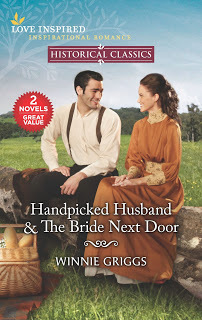 Handpicked Husband
Handpicked Husband
Regina Nash must marry one of the men her grandfather has chosen for her or lose custody of her nephew. But Reggie knows marriage is not for her, so she must persuade them—and Adam Barr, her grandfather’s envoy—that she’d make a thoroughly unsuitable wife. Adam is drawn to the free-spirited photographer, but his job was to make sure Regina chose from the men he escorted to Texas—not marry her himself!
The Bride Next Door
Daisy Johnson is ready to settle in Turnabout, Texas, open a restaurant and perhaps find a husband. Of course, she’d envisioned a man who actually likes her, not someone who offers a marriage of convenience to avoid scandal. Newspaper reporter Everett Fulton may find himself suddenly married, but his dreams of leaving haven’t changed. What Daisy wants—home, family, tenderness—he can’t provide…
BOOK LINK
.

The workhorse of a story is not words, or sentences or even paragraphs – rather it’s the scene. It’s in a scene that we see the key element of any good story - namely relevant change.
It is the elements of both relevance and change that makes a scene a scene.
So with that in mind I’d like to discuss eight elements I believe make comprise the checklist for an effective scene:
For purposes of this discussion, let’s imagine we’re working on a scene where our heroine, Deanna Deeva, is recently divorced. She’s struggling with what impact the label of divorcée will have on her social standing. She’s been invited to a party hosted by a longtime acquaintance and the scene opens when Deanna arrives and parks her car.
1. In an effective scene - something happens
The ‘something’ doesn’t have to be remarkable - it can be as simple as a single activity or as complex as several dozen story beats rolled together.
For instance, in our scene with Deanna Deeva, if the scene revolves around her fear of going out in public again, the ‘beats’ to this scene might stop with her making the decision to leave her car and walk up to the front door. The party itself may be transitioned over entirely since in this case it was her decision to actually join the party that was important to the story and to showing some aspect of her character.
On the other hand, if the thrust of the scene is to show how she handles being out among her friends, the scene could be composed of a number of beats - arriving at the party, a few awkward conversations, perhaps an overheard catty comment, catching the eye of an intriguing-looking gentleman, and the unexpected arrival of the ‘other woman’.
2. An effective scene should have a focus or goal
In other words, our character(s) will strive to achieve something. Note, the author needs to look at this on two very different levels:
One, is to view it from the character’s perspective - what does the character hope to accomplish during the course of this scene?
The second is the reader perspective. What do you as the author want the reader to come away from this scene with?
In our scene with Deanna Deeva, the character’s goal might be to prove to herself that her social standing was not adversely affected by the divorce. The author’s goal for the reader, however, may be to deepen her understanding of some aspect of Deanna’s character, either a strength or a weakness.
3. An effective scene should elicit a reaction
A well-crafted scene will evoke emotion of some sort, both in the characters on the page and in the reader. Note, these won’t necessarily be the same emotions.
Again, in our previous scene with Deanna Deeva, depending on how the author plays it out, the reaction of our focal character could be one of mortification, determination, depression, irritation, or even victory.
On the other hand, the reaction of the reader might be one of sympathy, amusement or even annoyance. A good writer will choreograph her scene to tease the emotions she wants from both the characters and the readers.
4. An effective scene will have a story purpose
The whole crux of your scene’s reason for being is to move the story forward in some fashion. There are many different kinds of scenes - fight scenes, flashbacks, love scenes, opening scenes, turning points, climactic scenes - but no matter the type, a scene must have some effect on the focal character or overall storyline . Something necessary to the story as a whole must be contained within the scene to warrant its existence, otherwise it should be rewritten or ruthlessly cut. In order to pull its weight effectively your scene should Ideally perform at least two story functions - three or four would be better.
5. An effective scene should have structure
• As in a full-blown story, each scene must have a well-defined beginning, middle and end. It’s a mini-story of sorts - there is an inciting incident, a series of actions or beats, and then a resolution that tells us we’ve extracted everything we can from this particular scene. However, with the exception of the final scenes, the scene resolution does leave some unanswered questions, some loose ends that nudge the reader into the subsequent scenes to try to find the answers.
6. A scene should show logical, believable progression
The scenes should flow one from the other, sculpting and shaping your story in an aesthetically satisfying way that is entertaining and relevant.
Since scenes are the building blocks of your story, they must be carefully placed and arranged with every other scene in order to construct a pleasing, functional whole. Each scene builds on the one that came before and leads to the next - enhancing, changing, or redirecting your through line in some way, either subtly or forcefully - always pushing inexorably forward to the story’s resolution.
CAUTION: Logical doesn’t mean predictable, but given what the reader knows about the characters and the situation, it must be a believable next step.
7. A scene should have a mood or attitude
This is the underlying emotion in your story. Is it comedic, solemn, dark, light? Are there underlying urges or desires that drive your characters? These will play into your scene in subtle or overt ways, coloring the actions and goals, informing the responses of both the characters and the reader. Again, using our scene with Deanna Deeva at the party, even using the same action beats in the scene, they will play out very differently in a romantic comedy than they would in a romantic suspense or women’s fiction work
8. The final element an effective scene must have is the one I’ve mentioned before, the all-important element of change.
The change can be big or small, but you should be able to both identify it and see how it moves your storyline forward. This forward motion can come either through revelation or a relevant honing of character, world or plot. Deanna Deeva, or her situation, must be different at the end of the scene than she/it was at the beginning.
Again, if something doesn’t change, then no matter how lyrical and elegantly crafted, no matter how invested you as a writer are in it, the scene must be ruthlessly deleted.
One final thought - the clearest test of a scene’s effectiveness is to use what Raymond Obstfeld, in his book “Crafting Scenes”, calls the so-what factor. When you finish reading over your scene, ask yourself “so what?” Is this scene necessary? If you remove it will it actually affect the outcome of the story ? Does it fit with the scene before and the one after? Did something change? Was it significant enough for its own scene or could the key points be folded in one of the neighboring scenes?
If you answer those questions it will become obvious whether or not you've nailed the scene.

For a chance to win a copy of any book from my backlist, Including the new 2-in-1 re-release below, please leave a comment.
 Handpicked Husband
Handpicked HusbandRegina Nash must marry one of the men her grandfather has chosen for her or lose custody of her nephew. But Reggie knows marriage is not for her, so she must persuade them—and Adam Barr, her grandfather’s envoy—that she’d make a thoroughly unsuitable wife. Adam is drawn to the free-spirited photographer, but his job was to make sure Regina chose from the men he escorted to Texas—not marry her himself!
The Bride Next Door
Daisy Johnson is ready to settle in Turnabout, Texas, open a restaurant and perhaps find a husband. Of course, she’d envisioned a man who actually likes her, not someone who offers a marriage of convenience to avoid scandal. Newspaper reporter Everett Fulton may find himself suddenly married, but his dreams of leaving haven’t changed. What Daisy wants—home, family, tenderness—he can’t provide…
BOOK LINK
Published on July 16, 2020 22:56
July 14, 2020
Healing the Wounded Hero…and Writer
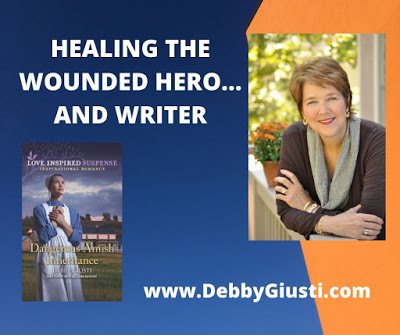
By Debby Giusti
Long ago, I attended an in-depth workshop sponsored by my Georgia Romance Writers’ chapter that dealt with story construction and character development. The speaker presented many ideas, but the takeaway that has stayed with me over all these years was her mention of a wound occurring in the hero’s youth that adversely affects him throughout life. She claimed adding such a wound would enhance the emotional impact of our stories.
Screenwriting consultant Michael Hauge uses a similar concept in his novel writing workshops. According to Hauge, the often misperceived comment or action— either overheard or occurring in childhood—is accepted by the hero as truth and perpetuates a feeling of low self-worth, thus forcing him to mask his true identity, which he believes is flawed. The mask is how the hero wishes to be perceived as he hides his authentic self from others and, sometimes, even from himself. Within a compelling story, the hero’s internal journey moves from what Hauge terms the hero’s identity, or the false mask he wears, to his essence or true self. The transformation to wholeness and acceptance of self provides an emotional punch that keeps the reader turning the pages.
I often create an internal wound for my heroes and include their journey to authenticity in my own stories. When working with the writing class I host, I encourage those attending the various sessions to include that inner journey as they brainstorm their stories. The hero’s wound should be specific and something the character can recall in time and place. For example, instead of saying the hero has always felt inferior to his younger brother, the writer should pinpoint an incident when the father praised the older child and maligned the younger sibling. The words should still reverberate in the younger brother's mind and underscore what he—the hero of the story—has accepted as truth since that time.

The hero might recount the following memory: “My father was proud of my older brother and said that very thing when he praised him for winning first place in the elementary school science fair. Conversely, Dad has always been embarrassed by my own less than stellar academic achievement and inability to succeed, which is what happened when the judges tried to make my experiment work at that same science fair. The audience laughed at my incompetence when the project literally fell apart on stage. At home that night, my father talked about his own mortification over my failure and called me a dummy who would never make anything of my life.”
With that false-truth ingrained in the hero, he can approach life in a number of ways. (1) He might try to win his father’s love and respect that continue to seem unattainable, thus perpetuating that sense of failure. (2) The hero could be lackadaisical about life and never attempt to achieve anything of worth, thinking he is incapable of being successful. (3) Or he could constantly compete with his brother, or other peers, and never establish healthy relationships that allow him to let down his guard and show his true self.
In the course of the story, the hero needs to remove his mask and see himself as he truly is. Perhaps he recognizes his own giftedness in an area he never gave himself permission to pursue, thinking it would not earn his father’s respect. His relationship with his father might begin to heal as father and son try to right the wrongs from the past. Even a hint of acceptance from his father could provide the first step to reconciliation. The hero could realize how he brought many problems upon himself, like a self-fulfilling prophecy, with his own fear of failure.
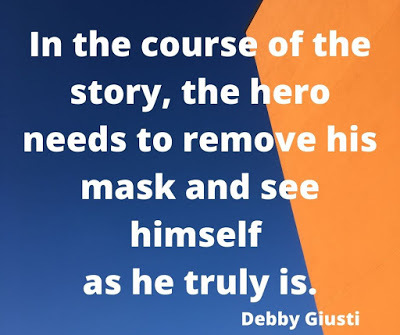
The hero has a new awareness of his own self-worth, he is able to forgive his father and/or his brother. Even more important, he forgives himself. If the wound has caused him to turn his back on the Lord, he can ask God’s forgiveness as well so that at the end of the story he is able to embrace life to the full. In my mind, that journey to wholeness provides a satisfying resolution to the stories I read…and write.
The hero’s journey applies to our own lives as well. If something is holding you back, if you see yourself in a less than flattering light, if you feel inferior or if you fear allowing others to see your authentic self, you—just like the characters in a story—may have an unresolved wound from the past. Through prayerful self-analysis, the wound can be revealed. Often something less specific comes to mind at first, but I suggest digging deeper and working to uncover the initial hurtful incident when the false sense of self began.
As Christians, we know Christ longs for us to live life to the full. Exploring the memory with Christ can provide healing. The Lord never uses harsh words or hateful criticism, instead he speaks lovingly and encourages us to accept the gifts and abilities he has given us. Revisit that painful situation but allow the Lord to speak positive words of affirmation and love. If you hear chastisement, such as if your father called you stupid, listen to the Lord say that you are wonderfully and beautifully made in his image and likeness and that you are a child of God.

Healing comes to our heroes at the end of our novels and usually in one fell swoop. In life, healing is a slow process that takes time. The wound often needs to be revisited over and over again until we can see clearly the fallacy of the pain-inflicting words and/or actions and come to recognize our own unique self-worth.
I hope you can use the wounded hero’s journey to wholeness in your own stories. I also hope you find release from any past pain with which you struggle as you discover your authentic self and your amazing giftedness.
Have you used the hero’s journey in your own stories or do you recall reading a book that successfully incorporated the technique? Leave a comment to be entered in a drawing for a copy of my Publishers Weekly Bestseller Dangerous Amish Inheritance.
Happy writing! Happy reading!
Wishing you abundant blessings,
Debby Giustiwww.DebbyGiusti.com
 Amish Christmas SearchOct 2020
Amish Christmas SearchOct 2020An Amish girl’s disappearance is a mystery…and the clues lead straight into danger at Christmas.
Convinced her friend didn’t run away as the police believe, Lizzie Kauffman searches for the truth—but someone will kill to keep it hidden. Now the Amish housekeeper and her friend Caleb Zook are on the run for their lives. And if they want to find their missing friend, Lizzie and Caleb must figure out a way to survive the holiday.
Pre-order HERE!
Published on July 14, 2020 21:00



